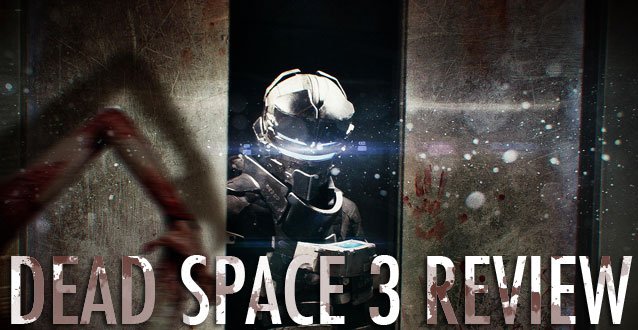

For the last few years, the net has been awash with crude, dumbed-down content. Perhaps we can make things somewhat more thoughtful this coming year?
My heart despairs when I see lists of the most visited sites online. The Daily Mail Online? You can’t be serious. For an intelligent species, I’d hoped for more.
Fortunately, not all hope is lost. Not yet, anyway. There’s still a chance to revive some of that faltering intellectual curiosity. There are still the odd online pockets that shelter more thoughtful, nuanced discussion, and commentary.
For a couple of years now, we’ve occasionally brought to light some of these refuges of intelligence. In 2013 we introduced you to Reddit’s In Depth Stories, and The Feature. In 2014 we told you about Narrative.ly and The Browser. Now at the end of 2015, we’re offering a much more comprehensive list of where to find the best online content, and journalism.
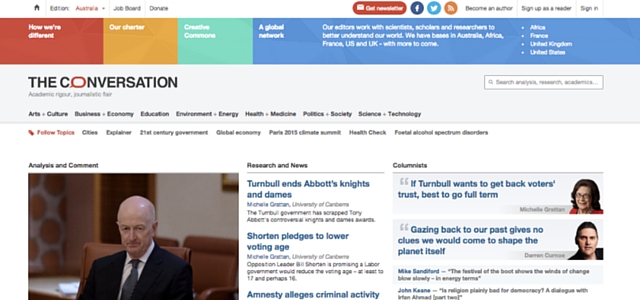
The Conversation offers in-depth news analysis written by professional academics. Each article is then edited to ensure high readability while maintaining credibility. This “knowledge-based journalism” is always evidence based, treating all data responsibly.
What’s more, all articles have a Creative Commons license, meaning they can be republished at no cost.
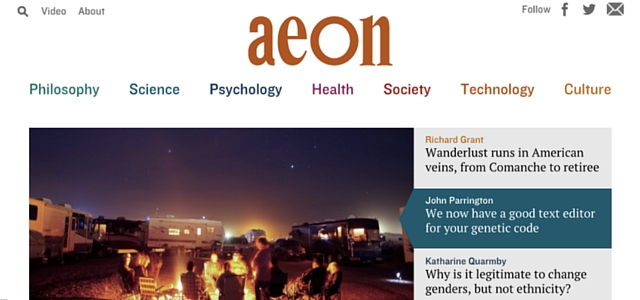
Since 2012, Aeon has been publishing what it calls “some of the most profound and provocative thinking on the web”. Its aim is to ask the large questions, and to offer new perspectives on common topics. Its “Essays” are written by many world-leading authorities.
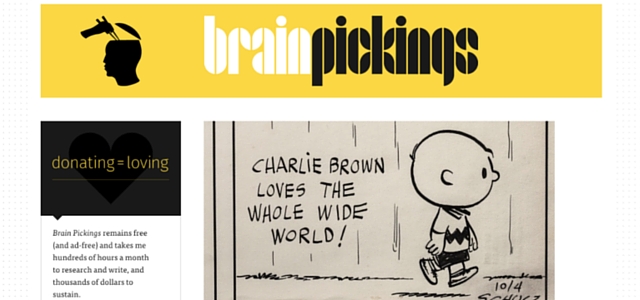
Insatiable reader, Maria Popova, began Brain Pickings in 2006 as a weekly email to her friends. It’s now an immensely popular site, though still ran solely by Maria. Within its many articles you’ll find plenty of “knowledge, insight, information, inspiration” over a huge number of topics. Each one is aiming to give us a somewhat deeper glance at life.
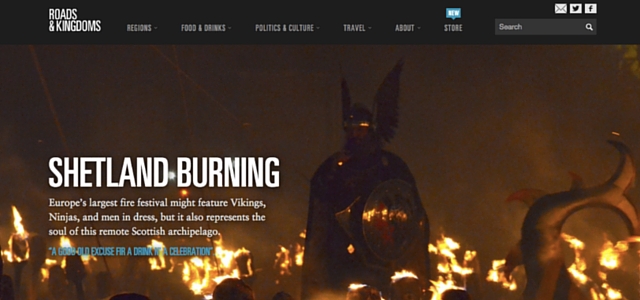
Roads and Kingdoms is a relatively new “independent journal of food, politics, travel and culture”. Its dispatches, photos, and interviews shine light on many areas of the world you would otherwise never know existed. The interests and experiences of its many writers make for exciting, daily reading.
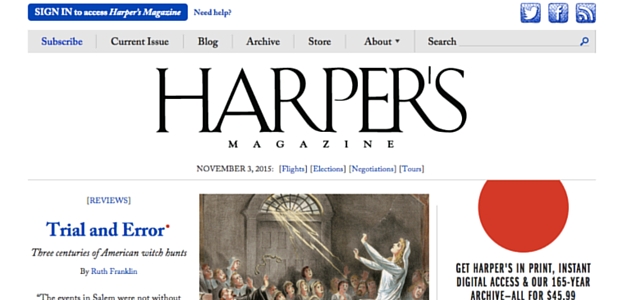
Harper’s Magazine has been publishing insightful, often challenging, narrative journalism and essays since 1850. Winston Churchill and Theodore Roosevelt both felt Harper’s Magazine worthy of their words. Its focus is on “fine writing and original thought”, spanning society, politics, culture, and the environment, makes this one of the great intellectual spaces on the web.
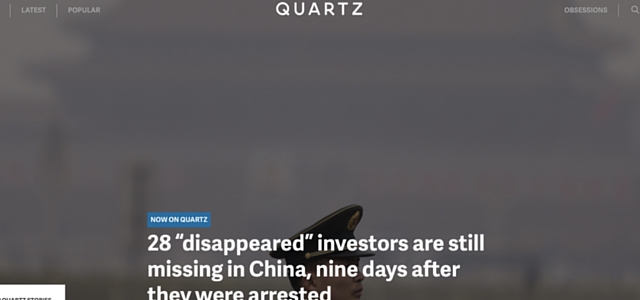
Quartz is a mobile-focused digital magazine. Their content is all crafted for perfect display on mobile and tablet, without the need to dumb-down. Born from the ashes of the financial crisis, its focus is generally on the world economy, aimed largely at world business leaders. This being said, its content is often incredibly hard-hitting.
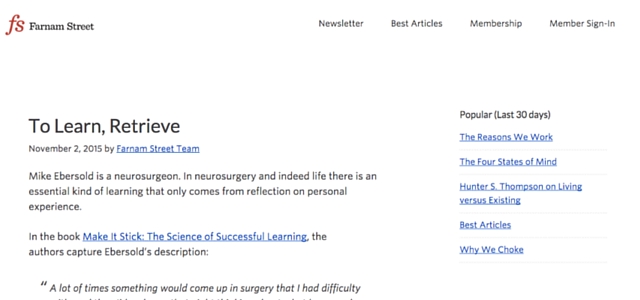
The FarnhamStreet blog consistently produces brain-food across a wide spectrum of interests, from science to philosophy. These aren’t necessarily related to current affairs, but are sure to force you to stop and think. They also have an incredible weekly newsletter that I’d urge you to sign up to.
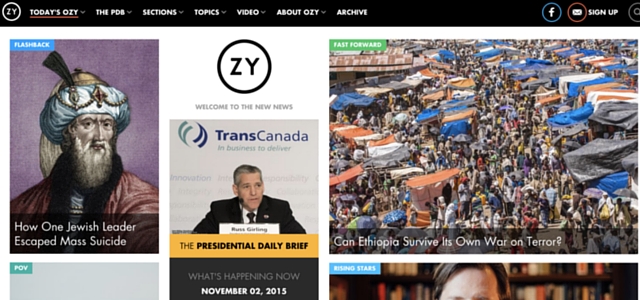
OZY promises to only publish “original content, focused not simply on where the world is but, more importantly, where the world is going”. They do this by thinking big, and by “challenging the assumptions” of traditional media. Boasting writers such as Bill Gates and Bill Clinton, many of OZY’s stories have been months ahead of the general media.
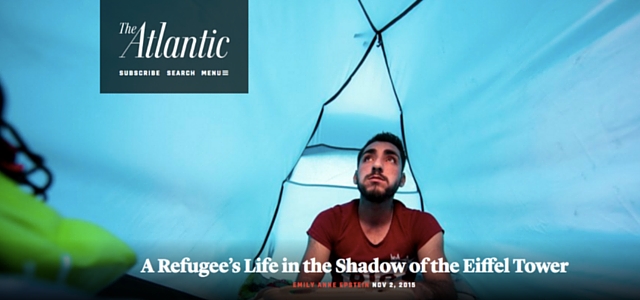
Founded in 1857, The Atlantic offers cultural and literary commentary on foreign affairs, politics, and cultural trends. It’s been the springboard for many great journalists’ careers, as well as a megaphone for new writers. Its content is almost always of a moderate stance, containing more than a hint of insightfulness.

Over the past couple of years, Vice has seen explosive growth in its popularity. Known for consistently creating hard daring, controversial writing and video, the site has become home to many who want an alternative view on what’s happening in the world.
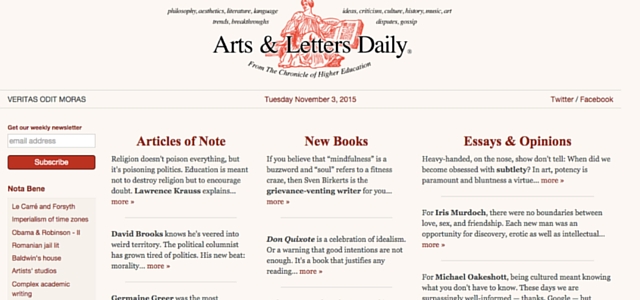
Arts and Letters Daily covers topics relating to all forms of “art”, from art history and aesthetics to linguistics and music. This is a curated collection of quality articles from around the web, meaning you don’t need to go scouring to find them yourself.
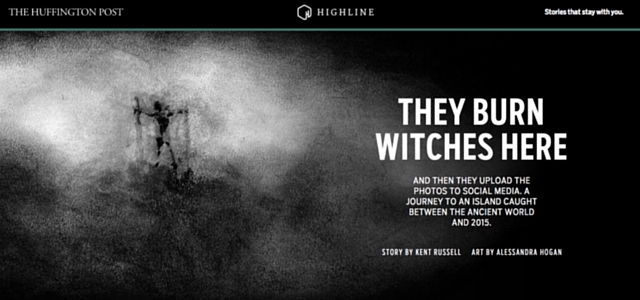
Highline is a lesser-known section of The Huffington post. Its aim is to offer a “new digital home for an old journalistic tradition. Think of it as a magazine that only runs cover stories — big, ambitious pieces intended to change the way you see the world or influence the course of policy”.
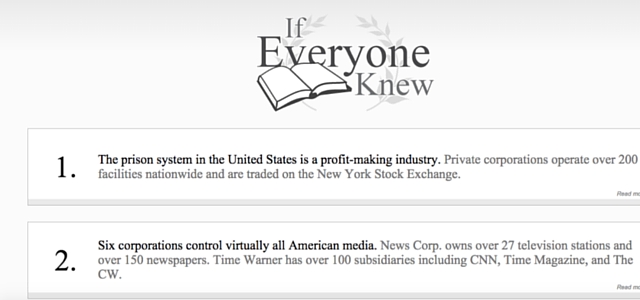
If you’re on the lookout for stories that are much less read, If Everyone Knew should be your first port of call. This is a curation of stories that are not receiving the media attention they deserve. The focus is primarily on articles that, if everyone knew about them, would cause an uproar. This site deserves more visitors.

Intelligent Life is a magazine run by The Economist, thereby keeping to its high journalistic standards. This is a culture and lifestyle magazine covering anything “as long as it’s interesting”. It’s all about “crisp prose, dry wit and free thinking. But rather than covering politics and economics, it is about life in general and making the most of your time off”.
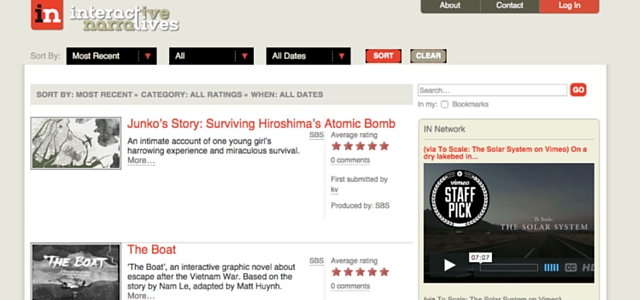
For multimedia storytelling, it doesn’t come much better than Interactive Narratives. This site aims to find and promote the best online visual storytelling it can find. The aim is to not just focus in what’s being said in a piece, but how it’s said, whether that be through photography, design, video, prose, animation, etc.
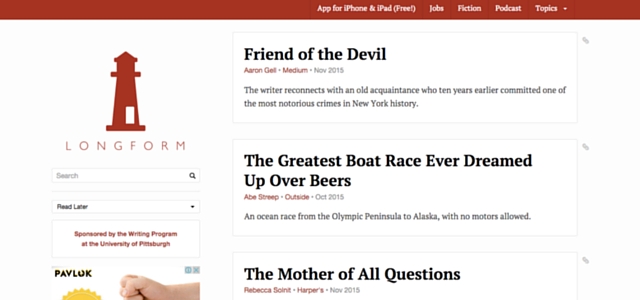
The well known curatorial site, brings the best long-form content (usually over 3,000-4,000 words) to your screen. This can be on any topic under the sun. And with easy ways to send articles directly to your Pocket, or Instapaper (find out how to become a power user) account, finding quality reading for later couldn’t be easier.

The New Yorker’s commentary on “politics, international affairs, popular culture and the arts” along with “fiction, poetry, humor, and cartoons” is often among the best you’ll find online. Every day, dispatches are published from the site’s many contributors, along with the content from the weekly print edition.
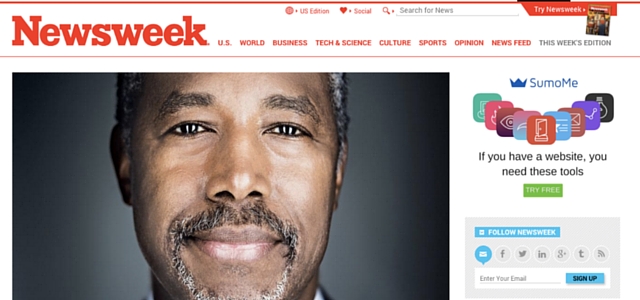
The high quality journalism that Newsweek consistently brings is much welcomed. Its analysis on global issues and current affairs have kept this a popular publication for over 80 years. Its daily articles are still of such a quality.
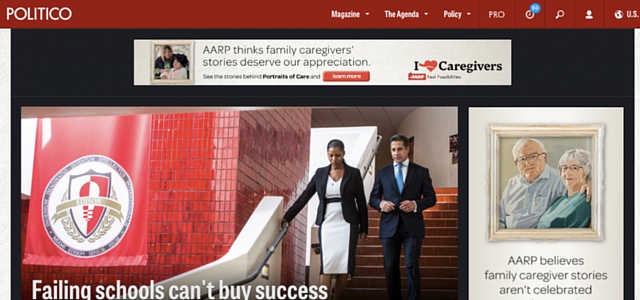
Politico was set up with a single aim: “to prove there’s a robust and profitable future for tough, fair and fun coverage of politics and government”. Their breaking stories, insightful commentary, and incessant need to make real, considered change in politics makes for some great reading.
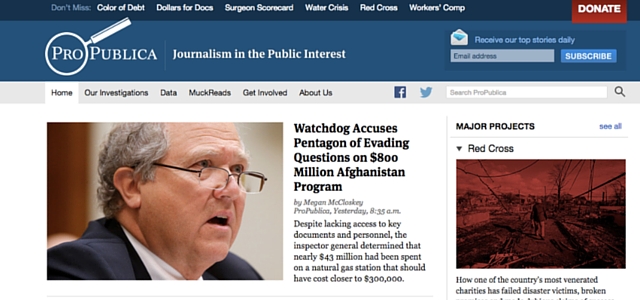
ProPublica’s tagline is “Journalism in the Public Interest”. This is precisely what they do. Each article published by this non-profit newsroom focuses on important, moral stories. They do this by “producing journalism that shines a light on exploitation of the weak by the strong and on the failures of those with power to vindicate the trust placed in them”.
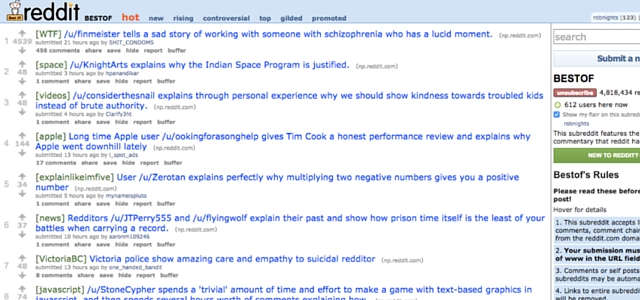
Join the Best Of Reddit community to see a never-ending list of quality content that this group of almost 5000 members have found. The stories here are almost exclusively moving and forceful. They are pieces of content you’re not likely to come across otherwise, so subscribing is definitely recommended. If you’re new to Reddit, our Reddit user guide will help you get started.
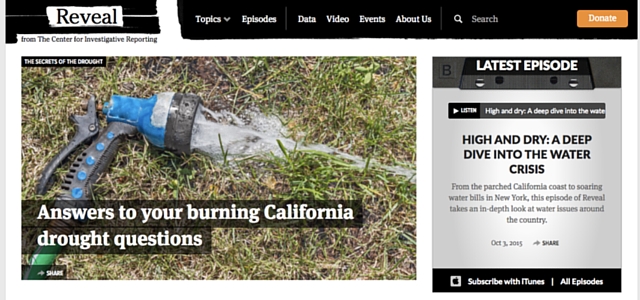
Reveal News is home to some of the best investigative reporting I’ve ever seen. It’s through this kind of reporting that Reveal is attempting to “spark action, improve lives and protect our democracy”. It’s here that you’ll find revelations of government fraud, taxpayer misspending, human rights violations, and much more.
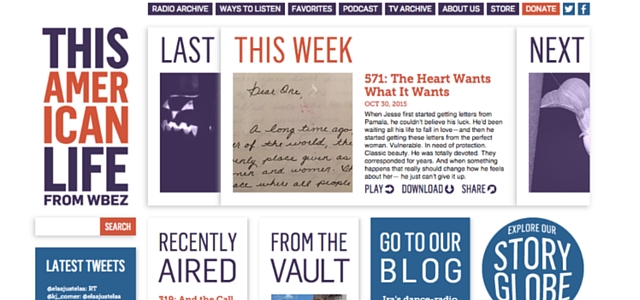
This American Life, though not written content, is an immensely popular public radio show for a reason. It has received a huge number of broadcasting awards due to the quality of its content. Each episode usually has a theme, often revolving around journalism. These themes aim to shed light onto the American life, in all its manifestations.
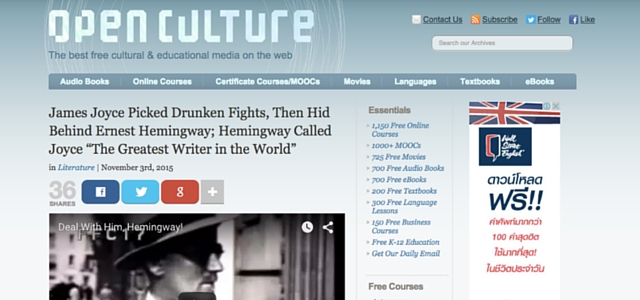
Open Culture is aimed at the lifelong learning community. These are people who are constantly striving to expand their knowledge in many areas. In their own words, “web 2.0 has given us great amounts of intelligent audio and video. It’s all free. It’s all enriching. But it’s also scattered across the web, and not easy to find. Our whole mission is to centralize this content”.
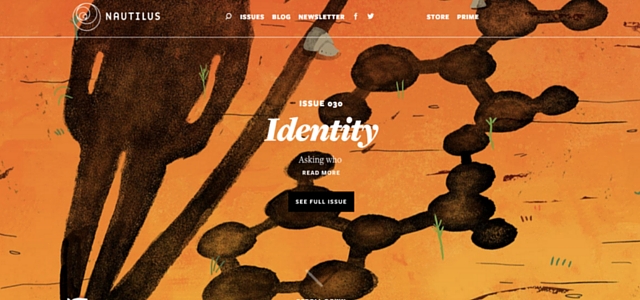
Nautilus chooses one scientific topic each month, and reports on this topic from a number of perspectives over the coming weeks. In a world where one scientific study can change public opinion, it’s always valuable to understand that there are many sides to each story, even when it comes to science.
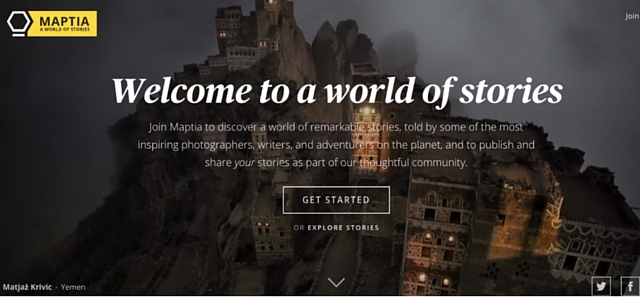
Maptia is a site focused on storytelling though beautiful writing, and stunning photography. There are several sections to the site, each having its own goals and themes. Stories that inspire us to get out there and make the most of our time on Earth is one example. Stories that foster empathy and understanding for other cultures is another.
The above are just a cross section of some of the more intellectually stimulating sites on the net. There are, of course, countless others. A few of those include:
If 2016 is the year we can begin to ditch the simplistic, biased content, and welcome more nuanced and thoughtful pieces; these are the sites that will lead us there.
Which other thought-provoking sites would you add to the list? And which of the above do you most enjoy reading?



